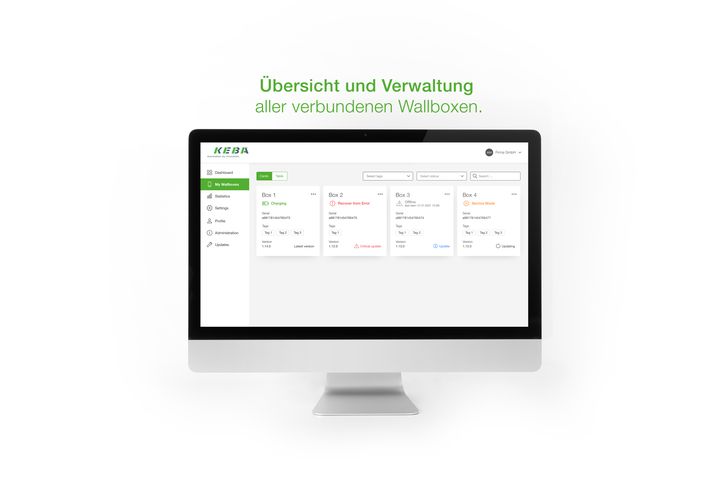
AI extension module AE 550
High-performance hardware in a miniature form factor
AI for industry applications
Are you ready to accelerate your potential?
As high-performance hardware in a miniature form factor, the AI extension module has been specially developed for AI applications in the industrial sector in compliance with all relevant standards. Its longevity and ruggedness are among the features that set it apart from electronics products in the consumer sector.
The AI extension module includes a sophisticated toolchain with all tools needed to collect, process and interpret data, allowing industrial customers to get started quickly with AI.
Features
- Open architecture
- Real-time capability
- Data sovereignty and security
- Industrial long-term availability
- Energy and cost optimized
- Scalability and efficiency thanks to modular hardware

Image
Classification

Image
Segmention

Object
Detection

Grasp Point Detection

Become part of our Early Access Program
The KEBA Artificial intelligence (AI) extension module is currently in prototype status. It is offered to interested customers as Development Kit (DevKit) in our Early Access Program.
The DevKit consists of:
- the Linux control unit CP 507/C
- a digital I/O card DM 570 and
- the AI extension module
With this DevKit you can immediately start your industrial project in the field of AI. We at KEBA are happy to support you during the setup and test phase.
How do I become part of the Early Access Program?
- Contact us for a use case discussion
- Participate in our training workshop
- Start your test phase for your industrial AI project
FAQs
Do you have further questions about the AI Extension Module or the Early Access program? We have collected the answers to the most frequently asked questions for you here. If you want to get more information, please contact us here.
Which networks are currently used for the AI extension module of KEBA?
The current focus is on networks from the fields of image classification (ResNet), object recognition and instance segmentation (YOLO). This means that there is currently a strong focus on deep learning, which has enabled many breakthroughs in the field of AI in recent years.
However, a variety of other neural network architectures and classic algorithms from the ML field can also be used out-of-the-box with the hardware.
Are in-house data scientists required in the company to use the AI extension module?
KEBA's aim is to make the module as easy to use as possible. Companies that do not currently have their own data scientists can also use it. For this purpose, we are currently working on our own interface and best-practice solutions that can be used very easily.
Is it possible to train neural networks directly on the module?
In the current practice, training and execution of AI models are two separate process steps.
Therefore, the focus of the KEBA AI Extension module lies on the execution (inference) of neural networks. Training neural networks on the module is not feasible, as this cannot be carried out in the desired time. This requires components with greater computing power (cloud, GPU).
Can the module switch between models that have been trained on different data sets? E.g. product change A, B, C
Yes, this is possible. The size of a trained and compiled model that can be used on the extension module is < 30 MB. Therefore, several models can be saved on the C5 control system with the extension module. They are accessed via function blocks in KeStudio.
Can the data also be stored in a cloud? How are they available?
The data and neural networks are processed locally on the AE 550.
However, the module is basically open for this purpose. Various options and interfaces are available for using the data and the results of the algorithms.
When is series production planned?
The hardware components for the AI module and KEBA toolchain are already at an advanced stage of development. We are currently working on integrating further feedback from the market and the early access program and driving forward the market launch.

Whitepaper
How to train an object detection AI model on a custom dataset
In this whitepaper we showcase the example of training an AI model to recognize a toy plane during its movement in a game.
This might also interest you

KeControl C5
The AI extension module AE550 is used in combination with the KeControl C5. It introduces core features for the local computing of neural networks.

How KEBA is bringing artificial intelligence to the industry
AI offers new possibilities for industrial automation. But how can AI be used in industry? And what challenges need to be overcome?

Solutions for digitalization in the industry
Digitalized solutions for plant & mechanical engineering. New business potential and greater efficiency in workflows & production processes.

Thank you for your request. Our KEBA Customer Support will get in touch with you soon.









































